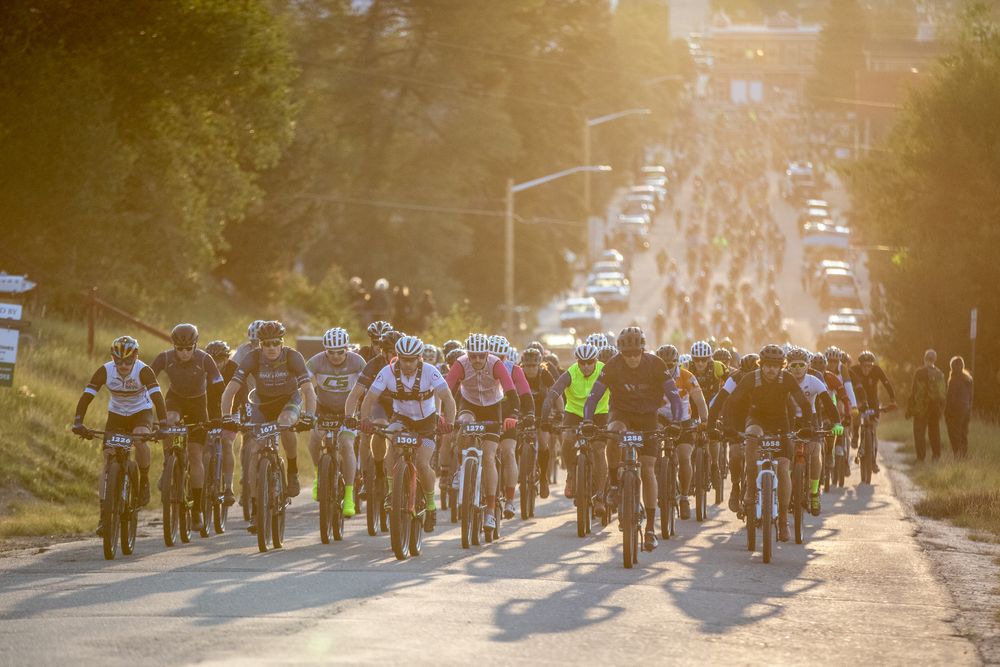What separates successful and unsuccessful race results can almost always be attributed to a racers ability to manage variables. In long distance bike racing, managing variables begins months or sometimes years before lining up at the start line. While physical preparedness is perhaps the most important variable, what we encounter on race day, and the way we respond is perhaps just as likely to impact how we finish the race.
My approach to managing variables has been to define those which I have total control over those which I do not. What’s critical however, is that even for those which we cannot completely control, we control the way in which we respond. We can’t control the weather on race day, but we can control how prepared we are to deal with weather. We can’t control the other riders on the course, but we can control how we will react to other riders.
Despite what many claim, the list of variables we do control, or at the very least impact, is much longer than the list of ones we cannot. One strategy I’ve developed in the days prior to an “A race”, is to control what I can control to the greatest extent possible, down to the last detail. So far this has resulted in two outcomes 1.) My race morning Is free of stress. I arrive at the race confident that both my bike, my gear, and my pre-race nutrition is ready 2.) I have a clear thought-out response to every circumstance and variable that might present itself (mechanicals, rain, hydration, etc.)
To refine this practice, and to ensure nothing gets missed, I created the following checklist of pre-race tasks for myself. I encourage anyone whose sacrificed time, early mornings, and their hard-earned dollars to create their own checklist; unique to themselves. Managing variables intentionally increases the chances that your race result reflects your hard work, not some mechanical issue or one-off circumstance. Control every variable within your ability, you’ll be thankful you did.
Bike (2 Weeks Pre-Race)
Mechanic Inspection. Check for frame cracks, fork seals, spoke tension, derailer function, headset function, bottom bracket function.
Chain replaced or at a minimum measured for stretch.
If not replacing chain, inspect shift cable tension and overall shift functionality.
Tires replaced with new sealant, rim tape if necessary.
Brake pads inspected, replaced if necessary.
Ensure dropper seat post functions.
Replace cleats.
Valves inspected and replaced if necessary.
Suspension lockout system inspected.
Pack List
Helmet
Shoes
Jersey, bibs, socks.
Gloves
Gast tank bag if applicable.
Arm warmers, jacket or vest.
Bottles
Camelback if applicable.
Bike food, hydration products.
Sunscreen
Ibuprofen
Sunglasses
Dynaplug, extra tube, patch kit, CO2, CO2 actuator.
Chain Lube.
Bike pump.
Start line jacket.
Heart rate monitor, bike computer, wristwatch, Bluetooth shifter charging, power meter charger or batteries.
Day Before Race
Breakfast, coffee, water planned and set out.
Shoes, helmet, gloves, sunglasses, sunscreen, in a bag already in the car.
Timecard taped to top tube.
Bike computer, shifter, heart rate monitor, and power meter charged and returned to bike.
Pump in car.
Bottles filled and in bike + hydration mix.
Number plate mounted.
Jersey, vest, bibs, socks, arm warmers, and jacket laid out.
Repair items mounted.
Gas tank bag mounted, filled with food.
Camelback filled and in car.
Aid station bag filled and given to spouse, coach, etc.
Water for car ride, pre-race time.
Cooler with ice, beer, drinks loaded in the car.
Sandals for post-race.
Chain lube.
Bike computer fields programed.
Ride bike for minimum 15 minutes, ensuring proper function.

